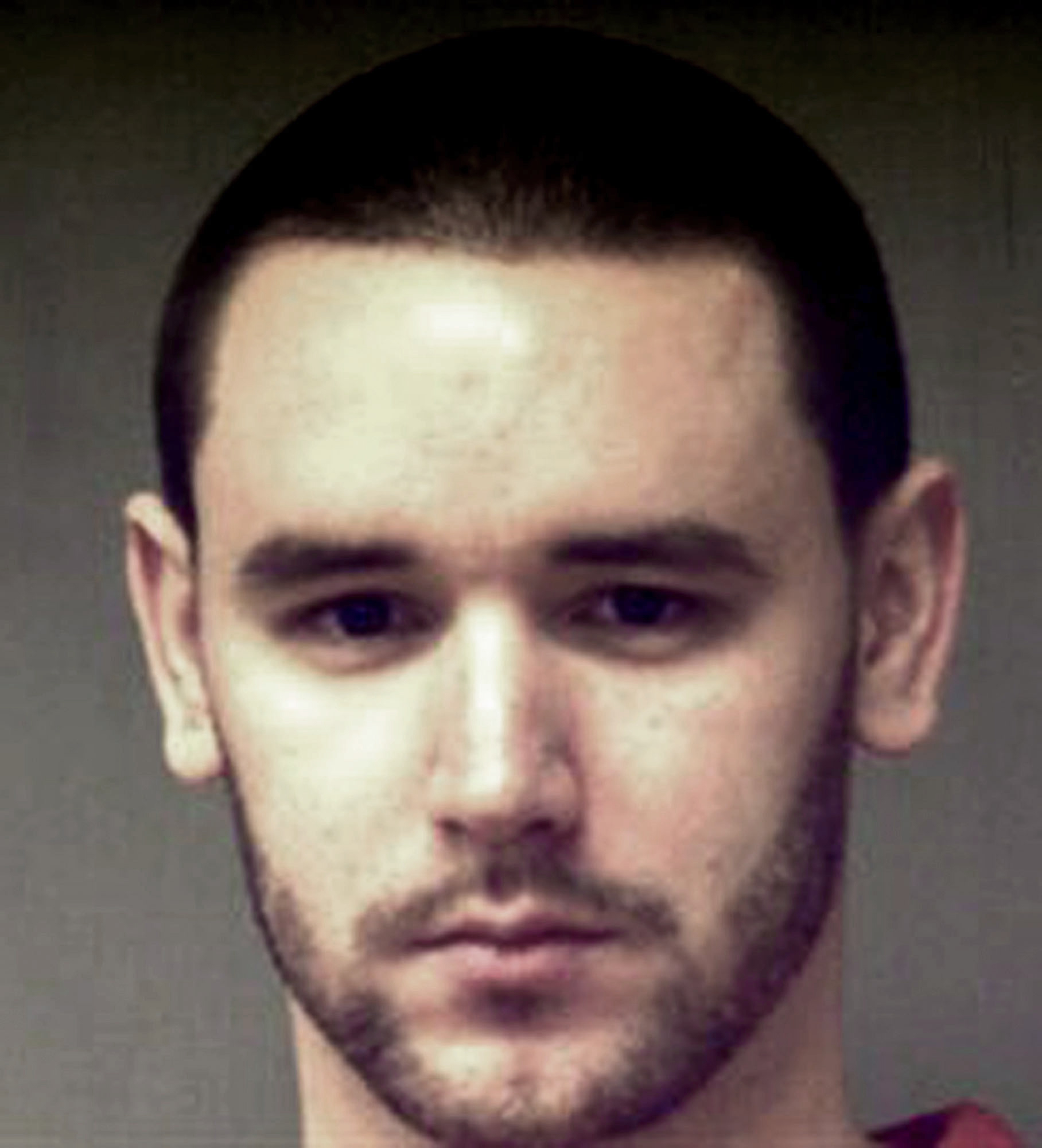 A July 23, 2007 file photo provided by the Connecticut State Police shows Joshua, Komisarjevsky, convicted Thursday, Oct. 13, 2011 of capital felony killing and other charges related to the beating of Dr. William Petit Jr., and the killing of his wife Jennifer Hawke-Petit and their two daughters in a July 2007 home invasion in Cheshire, Conn. The same jury will later decide whether he should be sentenced to death or life in prison. (AP Photo/Connecticut Department of Correction, File)
A July 23, 2007 file photo provided by the Connecticut State Police shows Joshua, Komisarjevsky, convicted Thursday, Oct. 13, 2011 of capital felony killing and other charges related to the beating of Dr. William Petit Jr., and the killing of his wife Jennifer Hawke-Petit and their two daughters in a July 2007 home invasion in Cheshire, Conn. The same jury will later decide whether he should be sentenced to death or life in prison. (AP Photo/Connecticut Department of Correction, File)JOHN CHRISTOFFERSEN, Associated Press
NEW HAVEN, Conn. - A Connecticut man charged with killing a woman and her two daughters in a home invasion said he was sexually abused as a boy and later turned to self-mutilation and drugs, according to a report introduced Thursday at his trial.
Joshua Komisarjevsky said he was raped and burned with a cigarette by a 15-year-old foster boy his parents were caring for, according to a report by a psychologist hired by his defense. The psychologist, Dr. Leo Shea, testified Wednesday that Komisarjevsky told him he was repeatedly sexually abused from the age of 4 to 6.
Komisarjevsky's defense rested Thursday, 2 1/2 weeks after the start of the trial. Closing arguments are scheduled for Tuesday.
He faces a possible death sentence if convicted of the 2007 attack in which he and Steven Hayes were charged with breaking into the Cheshire house, beating Dr. William Petit with a bat, tying him and his family up, dousing the house in gas and leaving his two daughters to die in a fire.
Hayes was sentenced to death last year after he was convicted of raping and strangling Petit's wife, Jennifer Hawke Petit, and killing the girls. Komisarjevsky is also charged with sexually abusing Petit's 11-year-old daughter Michaela.
Dr. Petit managed to escape to a neighbor's house to get help.
Defense attorneys called the psychologist in an effort to bolster their argument that Komisarjevsky suffers from "cognitive difficulties" that make him unable to make quick decisions in stressful situations. Komisarjevsky blamed Hayes for the killings in an audiotaped confession but could not explain why he did not untie the girls.
Komisarjevsky, who referred to the abuse as "my earliest memories," said in the report his parents eventually tried to get him help through the church and "got the elders to put their hands on me, to cast out sin, to heal me. I was so scared and felt smothered. I felt desperate to get out of that circle of people."
Komisarjevsky said he was taught Bible studies at home and "to exorcise the demons within." He said he was seen by pastors and church counselors to help him deal with his perceived sinful nature.
"My entire childhood was part church and part reason," Komisarjevsky is quoted as saying.
He said he worked as a lighting technician for The Continentals as the religious band toured the United States and Europe. He continued in musicals and dramatizations of Bible stories, according to the report.
Komisarjevsky, who was adopted at birth and later home-schooled, said at around age 9 he began wandering in the woods and monitoring others' houses out of curiosity. He said it was exhilarating and frightening and led to more risk-taking behavior.
Komisarjevsky, 31, was a paroled burglar at the time of the Cheshire crime and had been convicted of numerous nighttime home invasions.
He said he began self-mutilation at age 13, and carved the word "hate" into his arm as a teen.
"I hated everything about my life," he said. "I had been abused and wanted others to know what it was like to hurt, to lose something. I had so much pain inside and cutting was a way to get at it."
Komisarjevsky said he abused drugs daily when he was 20 to 21, including injecting crystal methamphetamine.
His history of sexual and drug abuse and concussions increased the likelihood of criminal activity, Shea testified Thursday. He said such a history does not mean someone will automatically turn to crime, but makes them more predisposed to criminal behavior.
Under cross-examination, Shea acknowledged sexual abuse of children is common.
"It does not necessarily lead to criminal behavior, I would agree with that," Shea said.
Shea said Komisarjevsky has a narcissistic belief in how smart he is.
"Obviously, he's very bright in certain ways," Shea said. "When he is in a new and novel situation, he doesn't do well."
